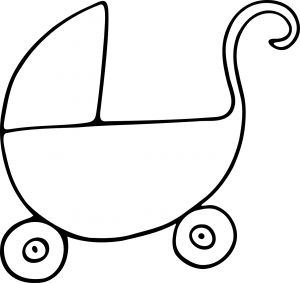I was recently reminded that the human animal is the only creature in the natural world that takes as long as it does to reach maturity and live independently.
Since we need so much help simply to survive for so much of our early lives, it seems that, as a species, we would be experts at asking for and receiving help. And, since many of us really enjoy giving aid – asked for or not – it seems like we’d all intuitively understand that asking for help isn’t a sign of weakness but of shared humanity. So why is it so hard for me to ask for help?
Different kinds of help
One of my theories is that there are different kinds of help. Asking for each of these kinds of help has a different risk factor that can hold me back. When I recognize what kind of help I need and understand that when I ask for help I reveal strength in myself, I also give an opportunity to someone else to lend a hand. Win-win-win.
Looking over your shoulder – Teacher or Judge
I think one of the highest risk ways of being helped is when someone looks over my shoulder – without my asking – to see if I really know how to do something. Some research shows that when we are performing a task that we don’t feel competent in, we we actually make more mistakes when someone is watching over our shoulder. It’s called the “audience effect.” At work, I feel like when I have someone watch me perform – say something like a new task in a new software program – if I’ve asked them to help, I feel totally supported and learn easily. But if they are there to judge and I didn’t ask for help and I feel unsure of myself – say working through a complicated financial report for the first time – then I can bomb. I admit that if I think someone’s going to judge my competence, I’m less likely to ask for help. That can’t be good.
Real Life Example: Several years back, I was leading a project with a scope that extended way beyond my area of influence in my organization. I didn’t want to look like I needed help even though I knew I was pretty much out of my league. So I put on a brave face, marshaled my team, developed a plan, and executed. While my effort didn’t fall completely flat, there were many people scratching their heads, wondering what I was aiming for. My boss never said a word. Then in my performance evaluation, I admitted in writing that I hadn’t met my own expectations and that I could have used my boss’ help. I’ll never forget the words he wrote back: “I was waiting for you to ask.”
Hand on your shoulder – Mentor
A lower risk helping situation is when I’ve specifically asked someone to guide me in a mentorship role. I will admit that I’ve never actually asked someone to formally mentor me. However, I can point to many people in my career who have acted as a mentor when I showed myself to be willing to ask for help. I’ve learned that a mentor is a guide, with a figurative hand on my shoulder, gently steering as needed. A fun game that’s sometimes played at camp or a retreat is where one person gets blindfolded and their partner verbally guides the other through a maze or obstacle course. There are multiple challenges at play here. First of all, the person with the blindfold on is completely dependent on their partner knowing how to guide them. They have to listen acutely to instructions from someone who isn’t used to giving such literal guidance. If the person with the blindfold moves ahead without instruction or the person doing the guidance makes assumptions, getting through the maze becomes an exercise in frustration.
How this plays out at work is also a bit of a dance. If I’m the person who knows the path, I have to find the delicate balance between making assumptions about what people know and micro-managing. If I’m the person with the hypothetical blindfold, I need to understand my limitations, trust my guide and be willing to accept help.
Real Life Example: A little while back I reached out for help to a former boss who knew me when I was very wet behind the ears as a leader. We see each other occasionally at conferences and reach out to say “hi” here and there. He is more advanced in his career and life path than I am, and I respect the choices he’s made in both realms. Rather than wait for a happenstance meeting, I emailed and asked if I could call and ask him about how to approach a situation at work where I felt unsure of myself. Of course he said yes. He gave me honest feedback about my approach and offered helpful advice that I didn’t want to take. With his encouragement, I followed his lead and got much better results than I imagined possible. When I followed up with him to thank him, his response was typical of a mentor: “Anytime.”
Push from behind – Coach
I think if I ever were brave enough to go skydiving, that I would need someone to literally push me out of the plane the first time. I’ve written before about how often coaches have helped me grow in my life. I’m a big fan of coaches and coaching. I use our organization’s HR director as my coach to help me be a better coach myself. I might know all the plays my team has to make and the skills they need to develop to execute those plays, but sometimes the tools I have in my toolbox don’t work they way I expect with certain members of my team. By asking for help from someone whose job it is to develop the talent of the larger team, I get new ideas about how to use the tools I have or what other tools I might consider pulling out of my bag. I’ve come to really enjoy these coaching sessions since a coach really just wants to help. A coach is there to help me learn how to improve my team’s performance, not compete against my team.
Real Life Example: About ten years back I was part of a group of staff that were selected to go through a year long executive leadership program. This program included a year of individual career coaching. While I didn’t specifically ask for this help, I was an eager and active participant. Someone else was paying for me to have a whole year of coaching from an expert. My coach was newly certified and diligently went through all the steps of coaching me to improve my self-awareness. He introduced me to the Enneagram and changed my approach to my life and work in ways I never imagined possible.
Stand alongside – Consultant
At work, I think that when I am standing alongside someone and they are standing alongside me, we are in the safest space to ask for and give help. A good example of standing alongside each other at work is when we work with a consultant. Finally getting to the place of giving in to the fact that there is more work that needs to be done than the team has capacity for or that the work that needs to be done needs more expertise that the team has is a place of release and victory. I’ve been on teams where the idea of bringing in a consultant is seen as a rival or insulting. A rival – because they might know more than someone on the team; an insult – because others might think the team should have this expertise in-house .
My experience is that when a team understands the role of a consultant – to stand alongside them, understand what they’re aiming for, walk them through the process and offer recommendations – that the result is always better than when they slogged through it alone, thinking that they were saving face or saving money, when in the end it’s likely they were doing neither. A consultant doesn’t always have to be paid, either. Sometimes a subject matter expert will be willing to come in and share what they know or give an initial consult to help a team see what they need and what it might take for next steps. It doesn’t hurt to ask.
Real Life Example: I was at a conference once where I was chatting with an architect about a small project with an even smaller budget that I was working on. She said that sometimes architects will do pro bono work. I don’t think she meant for me to literally ask her to help me for free, but I did just that. I reached out after the conference, she said “yes” and sketched out a conceptual drawing for our project. I couldn’t believe it was that easy.
Asking for help can make me feel vulnerable and exposed. Understanding what kind of help I need and knowing that others like to help gets me started down the path of win-win-win.
“Until we can receive with an open heart, we’re never really giving with an open heart. When we attach judgment to receiving help, we knowingly or unknowingly attach judgment to giving help.”
― Brené Brown, The Gifts of Imperfection

Recent Comments